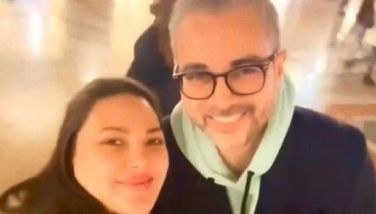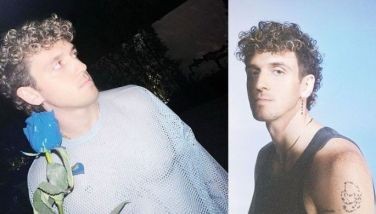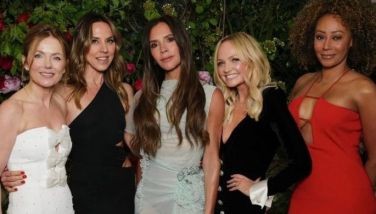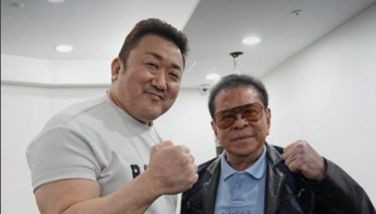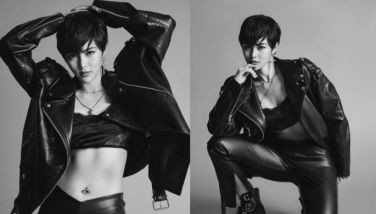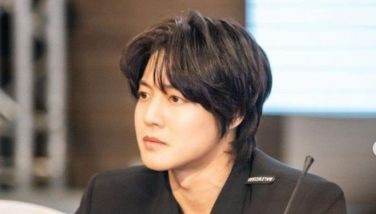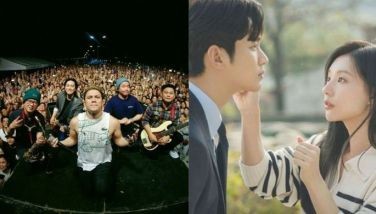Into the rabbit hole of biker gangs Gangland Undercover unveils violent truth
MANILA, Philippines - Spawned in the United States after World War II, motorcycle gangs do not just share an affinity for riding on two wheels, but also a love for freedom and nonconformity ingrained in the “biker lifestyle.”
For outsiders, our impression of these clubs is largely dictated by Hollywood’s portrayal. The leather jacket with sewed-on patch, the swagger, the gruff yet suave manner, the brotherly bond and the passionate adherence to a code comprise but some of the elements in the romantic stereotype.
This stereotype is what History’s Gangland Undercover wants to dismantle.
While there are indeed legitimate motorcycle clubs sanctioned by the American Motorcyclist Association, there is a very real, disturbing subculture within so-called “outlaw” motorcycle gangs that have taken the romantic image and bludgeoned it to death — quite literally, sometimes. A passion for crime and a scorn of norms apparently bring these dregs of society together.
Thus submits Gangland Undercover, which anchors its realistic tale of biker life on the inside on the account of Charles Falco, “one of only three men ever to infiltrate three different outlaw biker gangs” namely, the Vagos, Mongols and Outlaws.
An ex-drug dealer who was earning over $500,000 a year dealing methamphetamine, Falco was caught by the Drug Enforcement Agency (DEA) at his Southern California house and offered him a chance to redeem himself by becoming an undercover informant. Later, he would be conscripted by the Bureau of Alcohol, Tobacco, Firearms and Explosives (ATF) to infiltrate the infamous Vagos Motorcycle Club — notorious for criminal activities such as drug-dealing, assault, extortion, vehicle theft and even murder.
Displaying incredible courage matched only by his commitment to the task at hand, Falco routinely risked death even as he was witness to the atrocities the gang members partook in. The undercover agent also suffered “a fractured neck and a severely torn shoulder” in his quest to bring the “violent sociopaths” to justice.
In a Men’s Journal interview, Falco shared how he even chose “a stint in jail for an assault committed by fellow club members,” and instead of choosing the easy way out and alerting the local prosecutor about his status as an informant, the undercover operative did the time. This, of course, earned him respect among his club members.
Falco and his colleagues caused the arrest and or prosecution of no less than 60 gang members, including presidents and bosses of the gangs. These days, Falco is obviously a target, so he has a new identity following a stint under the witness protection program. “I’m in (mainstream) society, but I do have a secret identity, which protects me. I got a Masters degree so I can get into the arena of teaching, so I facilitate and train law enforcers,” he recently shared with The Philippine STAR in a phone interview. “It’s something I absolutely love, because our law enforcers are heroes to me. So to partake in meeting them, and teaching them, and developing them, is something I have a great passion for.”
Here are excerpts from our interview:
Hollywood romanticizes these gangs. We often see these gangs are contemporary cowboys, albeit on motorcycles? How far is this from the truth?
“Hollywood usually has to make them somewhat likeable, so the audience is pulled into it, so they give a romantic view of their lifestyle. And the lifestyle of the biker gang member is nothing like the lifestyle of a real biker… they like to have beers, go out with their fellows, maybe get a little wild, but their main purpose is to be criminals. These biker gangs, their first job is to be criminals and force other gangs out of the area. So their structure is not what you’d anticipate. Bikers… they’re structured like the military. They have an incredible set of rules and regulations. It gives severe punishments for not following those rules.”
What, to your mind, is the most important message that Gangland Undercover seeks to convey to the audience?
“I think (this is) the absolute closest you can get on television to the true story of how motorcycle gangs truly operate… They are not just a group of bikers out to have fun, but they are a true gang; an organized crime unit that bullies our society.”
You also said in an interview I read that they basically hate normal society. I’d like to know where you think that hatred comes from. What makes them despise normal society?
“I don’t know if it’s that they didn’t fit in, or they were rejected by society, or it was just a hatred that was developed from childhood. Their parents were (probably) anti-social, and they grew up in a poor economic state. They blame the government or other people for their problems. But I think it comes from a deep insecurity of normal society.”
You went through such an experience for not just one but three gangs. Was there a point that you asked yourself, ‘Why am I putting myself in this sort of situation?’ Was there a time that you just went ‘Hey, just pull me out of this’? What made you go on?
“In investigations, you’re always questioning why they’re getting you to do it. You know because it’s risky, miserable — it’s kind of a life-and-death chess game, where you don’t know if you’re going to lose or not, and be murdered, basically. And so, you do go through the question of your motives for doing it, why you’d want to do it. When I did the Outlaws, they were exceptionally brutal to their prospects, beyond with what I experienced with the Vagos. So there were times it took everything I had to not quit, and the reason I did not quit was I thought, in the long run, this will help our society, and make that change, that might (otherwise) kill or seriously hurt normal civilians. So it was for the bigger picture of helping our society.”
Do these bikers have a code? What do they hold sacred?
“Just as any criminal organization, if someone looks at you in the eye and gives you a handshake, you still have to be suspicious of them, because they’re just as dangerous as you. Most of these guys — even when they’re in the same chapter — they’re very self-centered, selfish individuals who are only really out for themselves.”
Is there hope for eradicating these gangs? Do you see that happening five to 10 years from now?
“That’s a very good question. When you look at it, their numbers change. The power that they have, the abuse that they make on society, have been weakened every time these investigations happen, especially for the US. I can’t speak for Asia or Europe, but in the US, these investigations (along with) stronger, organized crime laws have severely weakened their power. If you went back 30 years, you would see a much more powerful biker gang organization in the US. So has it affected their number? Not really, but it has affected their power.”
(Gangland Undercover, starring Damon Runyan as Charles Falco, airs Friday nights at 11 on History.)
- Latest
- Trending














